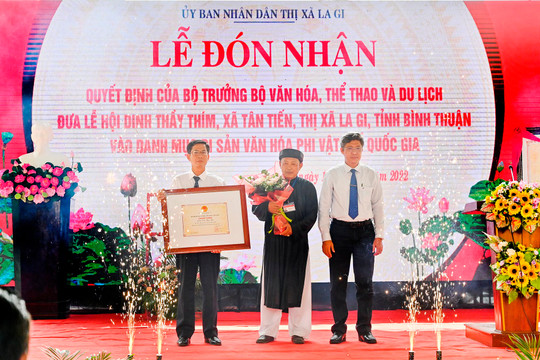
A mock-up of the Dong Son bronze drum displayed at the World of Sky Discs Exhibition in Germany. (Photo: VNA)
According to the German archaeologists, the Dong Son bronze drum, dating back to the Bronze Age, shares various similarities with many famous discs found elsewhere around the world, including “Nebra Sky Disc,” an ancient object thought to be the world’s oldest map of the stars created in Germany around 1670 B.C. The disc illustrates what may be the sun or full moon, a crescent moon and stars.
Through their decades-long cooperation, Görlitz and Wirth provided visitors with a glimpse on not only ancient astronomy but also the Bronze Age. The use of new image science methods has also led to ground-breaking discoveries of the sky discs.
Speaking at the launch of the event on July 15, Nguyen Thu Hang, Second Secretary at the Embassy of Vietnam in Germany thanked Görlitz and Wirth for offering the public with many useful information about astronomy and worldview from new perspectives.
Hang said she was proud to see Vietnam’s Dong Son bronze drum introduced at a German exhibition in such a unique way.
Dong Son Culture (dated from the seventh century BC to the first – second century AD) was a Metal Age in ancient Vietnam. It was named by archaeologists for the Dong Son village on the banks of Ma River, Thanh Hoa city where a number of bronze items were accidentally discovered in 1924.
The Dong Son bronze drums (also called Heger Type 1 drums according to F. Heger's classification) are bronze drums fabricated by the Dong Son culture and one of the finest examples of Vietnamese ancient bronze casting technique.
They were perhaps used as one kind of important musical instrument initially, but step by step, they became the symbol of power of Dong Son tribe leaders and representing for the survival of the Lac Viet Community.






.jpg)



















.jpeg)

.jpeg)


.jpeg)


